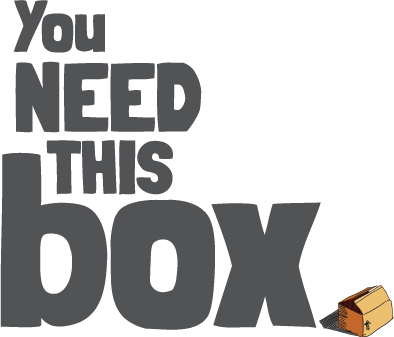Dispatches From The Journey
Activity One (Box 3)
A note on the recordings:
We recognize that each individual’s story is extremely personal and the telling of that story may require one to relive moments and emotions that are difficult and/or painful. We are incredibly thankful to the individuals who have chosen to be vulnerable and share their story with us.
With that in mind, and as this recording was made exclusively for the use of YNTB subscribers, we kindly ask that you not share them with others.
Dispatch #1
Kristofer
In these clips, Kristofer is sharing about his journey to becoming anti-racist, how he understands anti-racism to be a practice, and how important it is to build “anti-racist muscles” so that we can act on what we have learned.
Kristofer works as a a lead at a design consultancy. He is a father, a husband, and a retired tap dancer.
-
Man, it's really interesting to try to unpack when it started because the honest answer is, I feel like I'm still at the very beginning of it.
I feel like literally the last six months, the last year has been where I feel like I can, I don't know… It's like when you learn to draw and you finally… like the art supplies aren't just these abstract things. You're like ‘I can actually decide what I want to use and what I want to learn and what I'm going to use it on’. Literally that feels very new still.
But I guess for me, the real place where I noticed the lack of skill that I had was when the first major project I worked on had opened up and I realized that a bunch of voices that should have been included, weren't included in the design work. And that like, I had literally spent two years building a gallery about— it's called “Earth and Sky”, right?
It’s the science centre gallery in Spark and there are a lot of wonderful things in it. Literally built a gallery about this place without talking to any Indigenous people. Like, that's a problem! And I still remember like the opening night and I was like ‘holy!’. Then I like it's always in the back of your head, you're like ‘maybe we… what could we have done?’ And this was like, this was almost 15 years ago. And so, you know, I think the world has come a long way but it wasn't that far back.
So, you know, I think for me there's more of a noticing of the absence of skill and the absence of the journey. And then it probably took me another five or six years to get to a place where I was like, I need to actively start thinking about how I show up— how I show up as a leader, how I support hiring, how I think about who's excluded… And there's a whole big period of being able to notice the gap and not doing anything about it.
So if you think, like it's been more than a decade since I realized I had a problem and then most of that decade was spent like noticing just how big the problem was and starting to build skills. And only recently, do I feel like I actually can think about actions big and small that I can tangibly take in my life and my work.
It also helps that I have a partner. My husband too has been on this journey for a long time too and so I have someone safe to talk about that who has like a wonderfully high literacy of this and is trying to decolonize his own thinking and think about anti-racism as a practice.
-
So, here's a few things, I think about right now. My own practice, whether it's design or anti racism. I think about this duality of “both/and”, between repertoire and improv, and this is something that I learned tap dancing.
So, as a tap dancer, you actually, you learn by learning repertoire. You learn these traditional—these dances like the shim sham, and these steps—and you practice them until they're in your body. And then you also pair that with circling up and improvising and when you're struggling to improvise, sometimes you go back to the repertoire because that's where you built the muscles.
I think that a lot of this work around anti-racism, we need to build the muscles, we need to practice. So honestly some of it will be, or could be, at the risk of being performative. And so you need to find containers, good sandboxes to do that in.
Like, you don't learn repertoire on the stage in front of an audience where the stakes are high. So you have to learn the rep[ertoire] in a sandbox.
It's like…where's your dojo? Where is your stage? Like, where is your practice hall to build that repertoire so that when you end up in two possible situations—either performing like— not performing the anti-racism but like doing something that involves a pattern that you have to draw on. Like, you know, I'm gonna show up and facilitate in this way. Or ‘I'm gonna call truth to power in this way’, or ‘I'm going to do something’, that you can. Or if you're genuinely in that improv space, that you've got enough muscle memory that you can find the beat and flow with it.
So I, yeah, that's what I kind of think about. We need those dojos. We need those sandboxes to build the repertoire so that we can improv.
